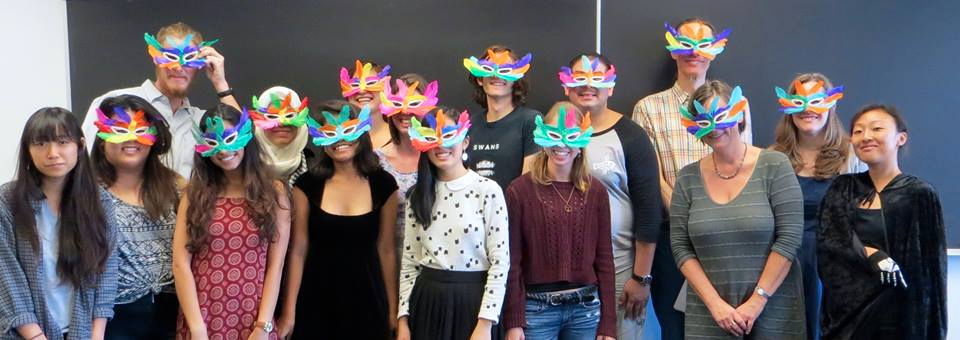
Why Major in English?
Perhaps the simplest answer to that question is: because it's fun. The Roman poet Horace famously declared that poetry must be "dulce et utile"-sweet and useful. If you love stories, if you enjoy arguing about the meaning of movies with your friends, if you write poetry or love thinking about the complexity and richness of language then getting to study English Literature intensely for several years is, well, pretty sweet. But it is also, we would argue, useful. Is there any other academic discipline which combines so many and so varied forms of intellectual inquiry? When we study literary texts, we're thinking about their aesthetic, formal qualities (how are they put together; why did the author choose this word rather than that one; why are we introduced to this character in this way?) but we're also thinking about the wider cultural and political world in which the text was produced. What does the text reveal to us about people's attitudes at the time it was written towards race, say, or the role of women in society, or the rise of industrial capitalism, or the proper relationship between the church and the state? And what is the author trying to say about those things, perhaps in stark contrast with the widely accepted views of her time?The English Major at UCI offers an extraordinary range of approaches to the literary text. You might explore the impact of Hollywood on storytelling in one class and examine the formal conventions of Elizabethan love sonnets in another. You might look at how Renaissance ideas about the divine right of kings are treated in Shakespeare's plays, or consider how the rise of Hindu nationalism is reflected in contemporary Indian literature. You might explore the ways Jane Austen subtly probes the boundaries of gender roles in early 19th-century England, or analyze the intersection of race and sexuality in the poetry of Langston Hughes. The study of literature, you will see, is also the study of history, of politics, of economics, of theology, of anthropology: it is, in the end, the study of who we are and where we have come from-and how we got here. To think hard about works of literature is to think hard about what we believe and what we value and, above all, how we reflect on those things in our writing.
What Can I do With an English Degree?
English majors can be found in a dizzying array of fields. To be sure, some of our graduates go on to teach English themselves, either in high school or, after completing a graduate program in English, at universities. But we also have graduates who go on to law school and med school (applicants with English degrees tend to do well in both areas), or who move into the business world in any area in which communication skills and the ability to think creatively are at a premium. Advertising, technical writing, public relations, computer gaming, journalism, publishing, government and public-sector work: these are just a few of the many fields our graduates have thrived in.
Why is an English degree so flexible? Because if an English degree is about reading, it is also about writing, about learning to present your insights in the most compelling and convincing way so that others can see and understand what you have found in the texts you've been reading.
More and more we find ourselves living in the Communication Age, and to master the ability to both understand how messages are formed to shape the world around us and to craft your own messages so as to have the maximum effect in the world is to gain tools that are only going to be in higher demand as time goes on. And that is both sweet and useful.

